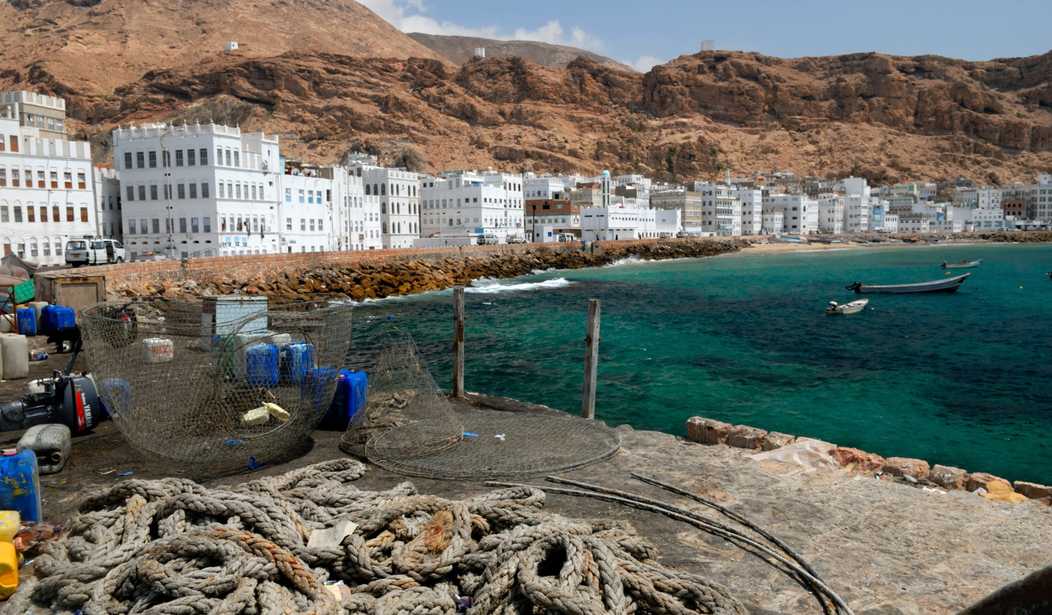Senators John McCain and Lindsey Graham raised forceful objections to president Donald Trump’s 120 day moratorium of refugee admissions to the US.
“At this very moment, American troops are fighting side-by-side with our Iraqi partners to defeat ISIL. But this executive order bans Iraqi pilots from coming to military bases in Arizona to fight our common enemies. Our most important allies in the fight against ISIL are the vast majority of Muslims who reject its apocalyptic ideology of hatred.”
McCain and others see counterterrorism as coalition warfare in partnership with “good guy” Muslims. To make it work America must stay in the good graces of its Islamic allies. This stands in contrast to the view which regards Islam itself as the triumphalist ideology: a threat to be contained, if not combated; to be accomodated very cautiously, warily and after much checking.
One difference between the two approaches is the desired outcome. The coalition approach does not envision a victory by one intractable side over the other but dreams rather of a stable modus vivendi between Islam and the West. It does not seek harmony nor cultural absorption but what used to be called peaceful coexistence.
But a modus vivendi does not imply a merger. Rather it envisions some degree of sustainable separation within which a lasting cooperation can take place. It is this element of separation that is often ignored by Western officials in their desire to ingratiate themselves with their allies. Too far can be as bad as too close. Just as Cold War required clear rules where each superpower kept to its side of the road, so would a regime of peaceful coexistence with Islam necessarily imply a program of conflict avoidance. Under peaceful coexistence multiculturalism itself could be destabilizing if it created potential flashpoints through diversity-driven interactions between two dissimilar systems.
Alliances are not mergers. They presuppose continued and independent life apart, without precluding cooperation. Unless the differences between the liberal lifestyle and Islamic teaching can be sufficiently trivialized they are bound to conflict, therefore creating an implicit tension between a “one world” craved by multiculturalists and the alliance desired by those like John McCain.
Apart from potential ideological conflicts the principal criticism of McCain’s “Muslims are our friends” strategy has been the lack of empirical success it enjoyed under GWB or BHO. It was the disillusion with this strategy that led first to Barack Obama’s election and later to Donald Trump. Although the “Islam as the religion of peace” approach pursued since September 11 may not have been a total failure it has not worked sufficiently well to satisfy the public.
There is a natural constituency for a Plan B instead of more of the same. Most critiques of the Muslim alliance strategy have focused on the details of implementation. Yet one largely overlooked factor ironically is the key role played walls. Let us digress by noting one widely recognized key to building stable systems is choosing how tightly to couple components. Loosely coupled systems are often more robust since they reduce the degree to which one subsystem must adapt to the other.
A borderless world, like an unsegmented network or unsubdivided ship, is potentially a tightly coupled system, vulnerable to the spread of effects from one component to the whole system. A media which routinely denounces the alleged Russian hacking of the DNC’s email must surely see the danger. Counterrorism literature however regularly emphasizes the role that optimal separation plays in fighting armed fanatics. To CT a local government, proxy or other institution is the key to successful Western involvement in an alien culture by keeping the culturally insensitive infidel away from the ummah except in controlled situations.
Optimal separation is the key to success.
One could in fact characterize CT as the “search for the ideal barrier”, the desire to obtain a local interface through which force can be applied without giving offense. Re-reading McCain’s statement clearly reveals how urgently Muslims are needed as transmission belts.
“At this very moment, American troops are fighting side-by-side with our Iraqi partners to defeat ISIL. But this executive order bans Iraqi pilots from coming to military bases in Arizona to fight our common enemies. Our most important allies in the fight against ISIL are the vast majority of Muslims who reject its apocalyptic ideology of hatred.”
How to acquire this interface has vexed strategists. The campaign in Afghanistan has tried to buy it by “nation building” so one needn’t talk directly to the Taliban who may resent being addressed. But what is not clear is why the introduction of Islamists to Boston or Canada should not have a similarly dysfunctional results. The results of a large scale refugee intake in Europe suggest they in fact have unfortunate outcomes. The politics of Europe is being torn apart by the tensions arising from open borders. The German Vice-chancellor warned that the EU ‘could fall apart’ if populists win the Dutch or French elections. Recently five persons were killed in an attack on a mosque in Quebec. Like nation-building open borders has exacted a high price for questionable returns.
But if nation-building technology doesn’t work nor open borders then what remains? Perhaps the key lies in controlling the degree to which the West and the Islamic world are allowed to interact. Sometimes a business-like relationship can work where mutual affection is impractical. The best approach to Islam could be to say nothing about it, either positive or negative, simply to enforce an optimal distance. A correct separation often works better when irreconcilable differences are involved, at least it does in failed marriages, than does enforced cohabitation as the preferred solution to chronic domestic violence.
Historically disparate cultures met at ports which both facilitated and limited their interaction. Ports need not be just waterfronts, they can also be virtual to any degree practicable. Such “wretched hives of scum and villainy” — could function far better than open borders and mass migration. Perhaps the real breakthrough in coexisting with the Islamic world will involve not opening the floodgates but writing the necessary protocols to make transactions sustainably work without risking too much friction. An Islamic nation that wants to remain both Islamic, yet at peace with the West may find it better to discourage its population from going West, where radicalization awaits, and stay at home where they can remain true to their faith yet trade profitably through the ports.
Perhaps the greatest cautionary tale of overreaching brotherhood comes from the sad fate of the modern Western university, which has become anything but inclusive in its mad career to include all. Through the operation of “diversity” policies administrators have built a simulacrum of a borderless society. The result is a travesty of its original vision. Conflicts did not go away but were rather driven underground or resolved by promoting one faction to dominance over the rest. The outcome was a sham harmony, tragedy as farce, rife with tensions and filled with ironic hatred which is the result of mandatory love and peace in lieu of the real thing.
This does not mean that “Muslim bans” are necessary or desirable, but open borders have their perils also. In many cases the right answer to questions lies between the extremes.
Follow Wretchard on Twitter
For a list of books most frequently purchased by readers, visit my homepage.
Support the Belmont Club by purchasing from Amazon through the links below.
Books:
Code Warriors: NSA’s Codebreakers and the Secret Intelligence War Against the Soviet Union, Author Stephen Budiansky – a longtime expert in cryptology – tells the fascinating story of how the NSA came to be, from its roots in World War II through the fall of the Berlin Wall. With access to new documents, Budiansky shows where the agency succeeded and failed during the Cold War and a series of appendixes explain the technical details of Soviet codes and how they were broken. An essential and timely read for all who seek to understand the origins of the modern NSA.
The Righteous Mind: Why Good People Are Divided by Politics and Religion, by Jonathan Haidt. A well-researched examination of human moral impulses that gives you the key to understanding the miracle of human cooperation, as well as the curse of our eternal divisions and conflicts.
The Revolt of the Elites and the Betrayal of Democracy, Author Christopher Lasch asks the question: Can a society survive when a significant portion of its elite have forsaken its founding principles? He blames America’s current problems on a default by its educated elite – their loss of moral values, and their abandonment of the middle class and the poor – and calls for a return to community, schools that teach history not self-esteem, and a return to morality.
The Punic Wars, by Adrian Goldsworthy. An account of the struggle for supremacy between Rome and Carthage (264-241 B.C., 149-146 B.C.) whose outcome had far-reaching consequences for the Western world. Follow the fighting on land and sea; the terrible pitched battles; and such generals as Hannibal, Fabius Maximus, and Scipio Aemilianus, who finally drove Carthage into the ground.
For a list of books most frequently purchased by readers, visit my homepage.
Did you know that you can purchase some of these books and pamphlets by Richard Fernandez and share them with your friends? They will receive a link in their email and it will automatically give them access to a Kindle reader on their smartphone, computer or even as a web-readable document.
The War of the Words, Understanding the crisis of the early 21st century in terms of information corruption in the financial, security and political spheres
Rebranding Christianity, or why the truth shall make you free
The Three Conjectures, reflections on terrorism and the nuclear age
Storming the Castle, why government should get small
No Way In at Amazon Kindle. Fiction. A flight into peril, flashbacks to underground action.
Storm Over the South China Sea, how China is restarting history in the Pacific
Tip Jar or Subscribe or Unsubscribe to the Belmont Club










Join the conversation as a VIP Member